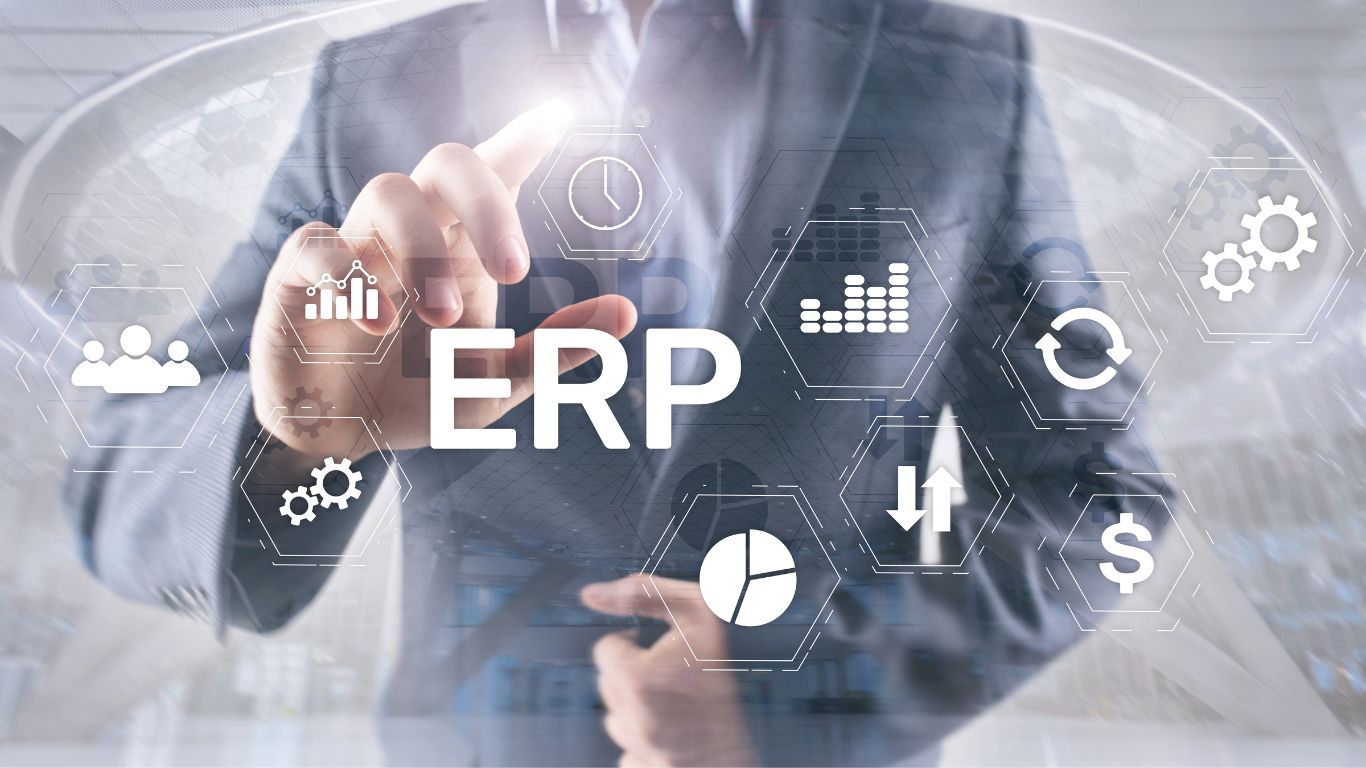The Impact of ERP Systems on Government Operations – Efficiency and Service Delivery
In today’s digital age, governments worldwide are facing unprecedented challenges. They must continually adapt to meet the demands of an ever-evolving landscape while ensuring efficient resource allocation, streamlined operations, and improved public service delivery. The solution to these multifaceted challenges lies in the transformative power of Enterprise Resource Planning (ERP) systems.
ERP systems have emerged as a linchpin for governments seeking to modernize their operations, drive efficiency gains, and enhance service delivery to citizens. In this article, we will dive deep into the profound impact of ERP systems on government operations, uncovering the manifold ways in which ERP systems have reshaped the public sector.
ERP Systems Revolutionizing Government Operations

Understanding ERP Systems
Enterprise Resource Planning (ERP) systems are software solutions designed to help organizations efficiently manage and integrate various aspects of their business operations. These systems serve as a centralized hub for collecting, storing, and analyzing data from different departments, such as finance, human resources, inventory, manufacturing, and more. By providing a unified platform, ERP systems enable businesses to streamline processes, improve communication, and make data-driven decisions, ultimately enhancing productivity and competitiveness. ERP systems have become a fundamental tool for modern businesses seeking to optimize their operations and stay agile in a rapidly changing global marketplace.
The Role of ERP Systems in Government
ERP system play a pivotal role in government agencies by integrating various functions and data into a unified platform. They cover financial management, human resources, procurement, and more, ensuring seamless data flow and real-time insights.
Efficiency Gains Through ERP Implementation

Streamlining Government Processes
One of the most significant benefits of ERP systems in government is the streamlining of processes. These systems automate routine tasks, reduce paperwork, and eliminate data silos, allowing government employees to focus on more value-added activities.
Enhanced Decision-Making
ERP systems provide government leaders with data-driven insights and analytics. This empowers them to make informed decisions promptly, allocate resources efficiently, and respond effectively to emerging challenges.
Elevating Service Delivery
Improved Citizen Services
Through ERP systems, government agencies can enhance service delivery to citizens. Reduced administrative burdens and quicker access to information result in more efficient public services, ranging from faster permit processing to improved healthcare.
Transparency and Accountability
ERP systems promote transparency and accountability in government operations. They enable the tracking of expenditures, performance metrics, and compliance, fostering trust among citizens and stakeholders.
The Future of Government Operations with ERP Systems

Embracing Technological Advancements
The future of government operations is closely tied to technological advancements. As ERP systems evolve, they will incorporate artificial intelligence, machine learning, and predictive analytics, further optimizing government processes.
Adapting to Changing Needs
Government agencies must remain agile and adapt to changing societal and environmental needs. ERP systems’ flexibility allows for quick adjustments to policies and procedures, ensuring governments can meet evolving demands effectively.
Choosing the Right ERP Systems for Government

Selecting the ideal ERP system is a critical decision for government agencies. Factors such as security, scalability, compliance, and customization must be meticulously evaluated to ensure alignment with specific government needs.
Considerations for Government ERP
Government entities embarking on the ERP selection journey must take into account several crucial considerations:
- Security: Given the sensitive nature of government data, the chosen ERP system must meet stringent security standards, incorporating robust encryption, access controls, and authentication measures.
- Scalability: The ERP system should be adaptable to accommodate government agencies varying sizes and scopes, allowing for growth and flexibility without operational disruptions.
- Compliance: Government operations are subject to specific regulations and compliance standards. The selected ERP system should seamlessly support these requirements, ensuring ongoing adherence.
- Customization: Government workflows often require tailored solutions. The chosen ERP system should offer customization options to adapt to the unique processes within government agencies.
Revolve Solution: Your Deltek Costpoint ERP Systems Consulting Partner
Choosing the right advisory solutions and consultancy partner is crucial in the quest for effective and sustainable growth. Revolve Solutions is a leader in the field, with professionals boasting three decades of experience in the US government Contractor (GovCon) industry.
The Impact of ERP Partnerships: Elevating Government Operations

ERP systems have emerged as the linchpin for government agencies striving to modernize their operations, boost efficiency, and elevate citizen services. These systems play a pivotal role by integrating various functions and data into a unified platform, covering crucial areas such as financial management, human resources, procurement, and more. This integration ensures seamless data flow and real-time insights.
1. Efficiency Gains Through ERP Implementation
One of the most significant benefits of ERP systems in government is the streamlining of processes. These systems automate routine tasks, reduce paperwork, and eliminate data silos. As a result, government employees can redirect their focus towards more value-added activities, thus enhancing overall productivity.
2. Tailored Solutions: Customizing ERP for Government Needs
A crucial advantage of ERP system is their flexibility in catering to the unique requirements of government agencies. ERP solution providers collaborate closely with government entities to customize the system, ensuring alignment with precise needs. This includes configuring workflows, data structures, and functionalities to integrate with existing government processes seamlessly.
3. Best Practices: Optimizing Government Operations
Furthermore, ERP partnerships grant access to industry best practices. Solution providers leverage their experience working with various government agencies, offering insights into what works most effectively. This guidance extends to process optimization, compliance, and data security, ensuring that government operations adhere to industry standards.
4. Accelerated Implementation: Streamlining ERP Deployment
The expertise of ERP solution providers expedites the implementation process, reducing downtime and accelerating the realization of benefits. Governments can start benefiting from their ERP investments sooner, minimizing disruptions to critical services.
5. Ongoing Support: Sustaining ERP Excellence in Government Operations
Post-implementation, ERP partnerships provide continuous support and maintenance. This ensures that the ERP system remains up-to-date, secure, and optimized for evolving government needs. Timely updates, troubleshooting, and training contribute to the long-term success of the ERP system.
6. Cost Efficiency: Maximizing ROI in Government ERP
ERP partnerships can also result in cost efficiencies. Government agencies can realise a higher return on investment by avoiding common implementation pitfalls and benefiting from tailored solutions. Reducing manual processes and increasing operational efficiency can lead to substantial cost savings over time.
7. Mitigation of Risks: Proactive Measures for ERP Success
ERP partnerships offer a proactive approach to risk mitigation. ERP solution providers understand potential risks and challenges that can arise during implementation. Their expertise allows for identifying and mitigating these risks, reducing the likelihood of costly setbacks.
Conclusion:
In conclusion, ERP systems have become a driving force behind the transformation of government operations. By streamlining processes, enhancing efficiency, and improving service delivery, it enable governments to serve their citizens better. As technology continues to advance, the role of ERP systems in government will only grow, leading to more responsive, accountable, and efficient public administrations. Join us in exploring the dynamic landscape where ERP solutions meet the evolving needs of government operations.
Ready to revolutionize your business with ERP? Contact us today!

